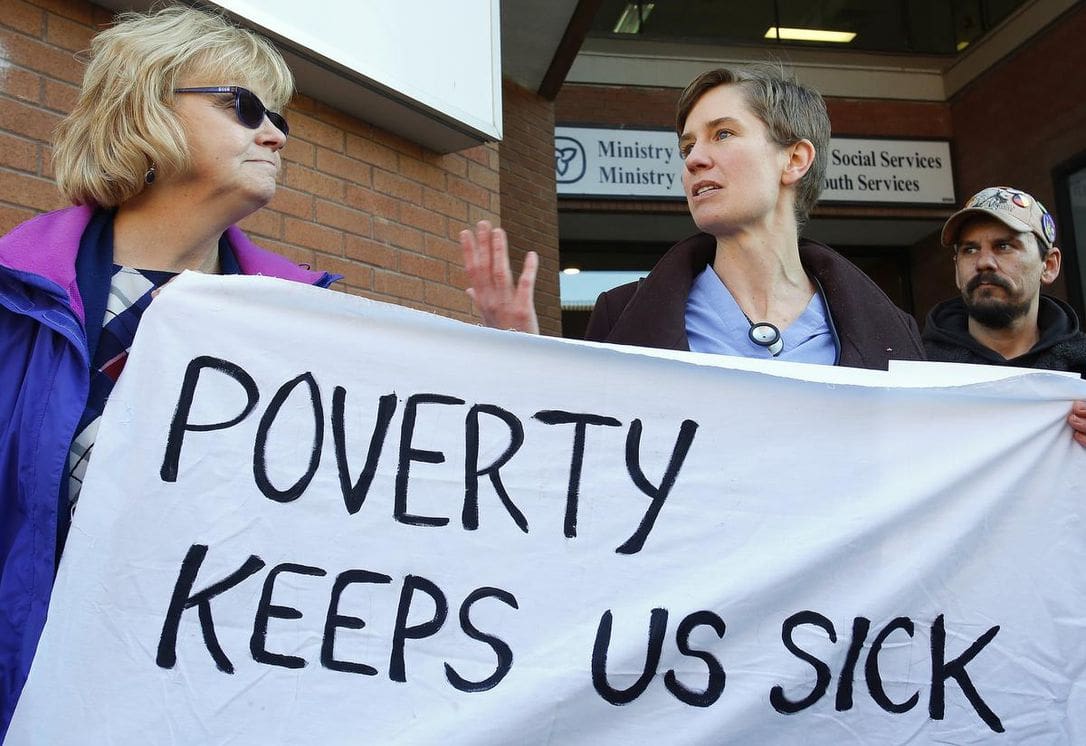The expert panel would have benefited from a political scientist or, heaven forbid, one or two people actually living in poverty sharing the pen.
By Hugh Segal
A recent report of the British Columbia Expert Panel on Basic Income prepared over two years by three economists, two from B.C. and one from Alberta, has given encouragement to long standing opponents of a basic income.
In some ways, however, the very nature of their sixty-five recommendations for program changes in income security and related programs in B.C. undercuts the anti-basic income orientation of the report itself. The analysis and recommendations of the report do appear to have the authors bumping into themselves while coming around the corner.
They are right, of course, in one central conclusion: basic income is not affordable by any one province on its own.
Important pillars of Canada’s poverty reduction program, the Guaranteed Income Supplement for seniors, and the Child Benefit for low-to-modest income families with children are national programs administered by Ottawa. They are successful and efficient — and did not and do not require building new administrative capacity to administer them, now, or in the future — as would be very much the result for the multi-program fix called for by the B.C. expert panel.
The other rather intriguing conclusion from the content of the report, was the agreement of all three panel members to downplay the value of “autonomy” for those in poverty who might be lifted out of poverty by basic income.
Better, the report concluded, to shower the poor with a myriad of different programs, each incrementally adjusted or improved over the present version, in the belief that will create the village necessary to help the poor.
It is the classic government conceit, that if “we build it” they will come — the “they” here being the poor with no other choice.
Our First Nation brothers and sisters understand the sound of “the crown knows best” trumpet. It is simply a colonialist response that denies poor Canadians the life choices, however modest, that a basic income would provide.
The B.C. report embraces costing of a basic income with assumptions about the option of sending a cheque to everyone, whether needy or not, and taxing back the excess from those not in need.
There are few proponents in Canada of this Andrew Yang-style American proposal.
As is the case with the Guaranteed Income Supplement and the Child Benefit, that has not been the Canadian way. Our tax system is an excellent way of determining need, through the statutory filing we all make, and enhanced automatic filing now being considered by Ottawa.
The Guaranteed Income Supplement for those over sixty-five is based on the premise that every senior needs around $1,500 monthly ($2,400 for a couple). The gap between what they do have and $1,500 is topped up by the supplement — the opposite of “the same cheque for everyone” as opponents of a basic income allege. Recipients will need different levels of top up, and that is exactly what happens now.
The B.C. report buries very little of the compelling case for basic income by questioning the improvement in health outcomes that would accompany using a basic income to lift the poor into the mainstream.
The three economists set aside decades of empirically reviewed literature on the social determinants of health.
Most disappointed at the report are the members of the B.C. Green party, whose alliance with the New Democrats allowed the Liberal government to be replaced without an election. They sought action on the basic income, as a condition of that alliance.
The B.C. NDP government may well use the expert panel as a rationale to do little if anything other than tinker incrementally with a myriad of programs.
Poverty levels in B.C. will not come down as a result of any of report’s recommendations.
There are lessons here for those who care about government and the quality of expert advice it seeks and, on occasion, receives.
The expert panel would have benefited from a political scientist or, heaven forbid, one or two people actually living in poverty sharing the pen.
Even Adam Smith, the market and society theorist from the eighteenth century, whom they cite in their anti-basic income rationale, might well have told them that.
_____
To see original article please visit: https://www.thestar.com/opinion/contributors/2021/02/19/a-voice-against-burying-the-idea-of-a-basic-income-for-canadians.html




















